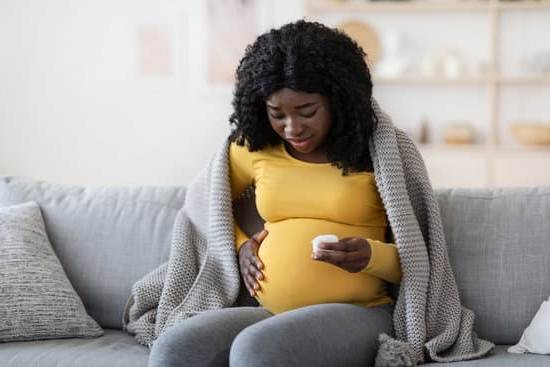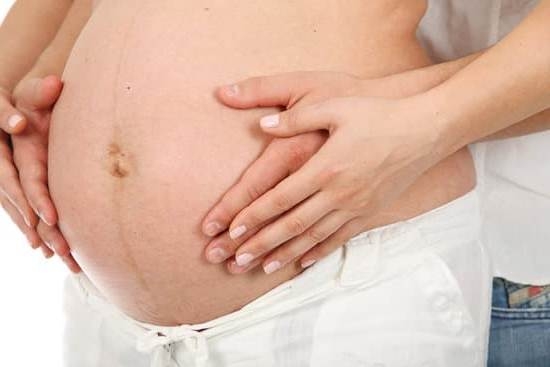Are you experiencing early pregnancy symptoms and wondering what they could mean? From changes in your body to common and uncommon symptoms, understanding the signs of early pregnancy is essential for navigating through this crucial period. In this article, we’ll delve into the various aspects of early pregnancy symptoms, from the physical changes in your body to the signs that may indicate you’re expecting a baby.
The first indication of pregnancy typically begins with changes in your body, starting from implantation to a missed period. Understanding these changes can help you recognize the signs and prepare for what’s to come.
Common symptoms such as nausea, fatigue, and breast tenderness are often experienced during the early stages of pregnancy. It’s important to note that every woman’s experience with early pregnancy symptoms can vary, and some may also experience uncommon symptoms like cravings, mood swings, and dizziness.
It’s crucial to be aware of the signs to look out for during early pregnancy, such as spotting, frequent urination, and bloating. These signs can provide valuable insights into your body’s transition into pregnancy. Additionally, knowing when to take a pregnancy test for timing and accuracy is essential for confirming your suspicions. Stay tuned as we explore all aspects of recognizing and navigating through early pregnancy symptoms in this comprehensive guide.
Changes in the Body
During the early stages of pregnancy, a woman’s body goes through a series of changes as it prepares to support the growth and development of a fetus. These changes typically begin with implantation, which occurs when a fertilized egg attaches itself to the lining of the uterus. This can result in some minor discomfort and spotting for some women. From this point, the body begins to undergo various physiological changes in anticipation of pregnancy.
Implantation
Implantation is one of the earliest signs of pregnancy and typically occurs around 6 to 12 days after ovulation. Some women may experience light spotting or cramping during this time, which can often be mistaken for the start of their regular menstrual cycle.
Hormonal Changes
After implantation, hormonal changes occur within the body in response to the presence of a developing embryo. This includes an increase in levels of progesterone and hCG (human chorionic gonadotropin), both of which are essential for supporting a healthy pregnancy. These hormonal fluctuations can bring about several common early pregnancy symptoms such as nausea, fatigue, and breast tenderness.
Missed Period
Another significant change in the body that signifies early pregnancy is a missed menstrual period. For women with regular menstrual cycles, missing a period is often one of the first indicators that they may be pregnant. However, it’s important to note that not all women will have this particular symptom, so it’s essential to consider other early pregnancy signs as well.
Common Early Pregnancy Symptoms
During the early stages of pregnancy, the body undergoes numerous changes as it prepares to nurture a growing fetus. These changes often manifest in the form of various symptoms that can be indicative of pregnancy. While every woman’s experience with pregnancy may differ, there are several common early pregnancy symptoms that many women experience. These symptoms include nausea, fatigue, and breast tenderness.
Nausea
Nausea, commonly referred to as morning sickness, is one of the most well-known early pregnancy symptoms. It is characterized by feelings of queasiness and an aversion to certain foods or smells. Nausea can occur at any time of day and may range from mild discomfort to severe vomiting. This symptom typically begins around the sixth week of pregnancy and usually subsides by the end of the first trimester.
Fatigue
Fatigue is another prevalent early pregnancy symptom that many women encounter. During the early stages of pregnancy, hormonal changes can lead to feelings of extreme tiredness and exhaustion. This fatigue often sets in even before a missed period and may continue throughout the first trimester. It is important for pregnant women to listen to their bodies and get plenty of rest during this time.
Breast Tenderness
Breast tenderness is also a common sign of early pregnancy. Hormonal fluctuations cause an increase in blood flow to the breasts, leading to soreness, sensitivity, and swelling. This symptom may be accompanied by changes in nipple color or texture. Breast tenderness typically begins around the fourth week of pregnancy and can persist throughout the first trimester.
Understanding these common early pregnancy symptoms can help women identify potential signs of pregnancy and seek appropriate medical care when needed. It’s important to remember that every woman’s experience with early pregnancy symptoms may vary, so it’s essential for individuals to listen to their bodies and consult with healthcare professionals if they have any concerns about their health during this time.
Uncommon Early Pregnancy Symptoms
Cravings, mood swings, and dizziness are among the less common early pregnancy symptoms that women may experience. While not as widely discussed as nausea or breast tenderness, these symptoms can still be indicators of pregnancy and should not be overlooked.
Cravings during early pregnancy can range from specific food items to unusual combinations of flavors. Some women report sudden desires for pickles and ice cream or cravings for foods they normally don’t enjoy. These cravings are often attributed to hormonal changes and increased estrogen levels in the body.
Mood swings are also a lesser-known early pregnancy symptom. Hormonal fluctuations can lead to emotional ups and downs, causing pregnant women to experience heightened sensitivity and mood changes. It’s important for partners and loved ones to offer understanding and support during this time, as managing emotions can be challenging for expectant mothers.
Dizziness is another potential sign of early pregnancy, often due to changes in blood pressure or blood sugar levels. Pregnant women may feel lightheaded or dizzy when standing up quickly or after prolonged periods of sitting or standing. This symptom typically occurs in the first trimester but should be monitored closely to ensure overall health and well-being during pregnancy.
| Early Pregnancy Symptoms | Frequency |
|---|---|
| Cravings | Less common |
| Mood Swings | Less common |
| Dizziness | Less common |
Signs to Look Out For
Spotting, frequent urination, and bloating are all common early pregnancy symptoms that many women experience in the first trimester. While they can sometimes be mistaken for other conditions, these signs should not be ignored as they may indicate the presence of a developing fetus.
Spotting, or light bleeding, is one of the earliest signs of pregnancy and typically occurs around the time of implantation when the fertilized egg attaches itself to the uterine wall. It is often lighter in flow and shorter in duration compared to a regular period. If you experience spotting along with other early pregnancy symptoms such as nausea and fatigue, it may be worth taking a pregnancy test.
Frequent urination is another common symptom experienced in early pregnancy. This occurs due to an increase in blood volume and hormonal changes which lead to more fluid being processed by the kidneys. Additionally, as the uterus expands to accommodate the growing fetus, it puts pressure on the bladder causing a need for more frequent trips to the restroom.
Bloating is also attributed to hormonal changes during early pregnancy, leading to gas and constipation. These symptoms are usually temporary but may cause discomfort for some women.
| Early Pregnancy Symptom | Description |
|---|---|
| Spotting | Light bleeding around the time of implantation |
| Frequent Urination | Increased need to urinate due to hormonal changes and pressure on the bladder |
| Bloating | Feeling of fullness or tightness in the abdomen caused by hormonal changes |
When to Take a Pregnancy Test
Taking a pregnancy test can be an anxious time for many women as they await the results. Understanding when to take a pregnancy test and the accuracy of the results can provide valuable insight into whether or not you may be pregnant. Here are some key points to consider when it comes to taking a pregnancy test.
- Timing: It is recommended to take a pregnancy test after you have missed your period, as this is when the hCG hormone levels are high enough to be detected by the test. However, some early response pregnancy tests claim to detect the hormone as early as 6 days before your missed period.
- Accuracy: Most home pregnancy tests claim to be over 99% accurate when taken after a missed period. However, there are factors that can affect the accuracy of the test, such as not following the instructions properly or testing too early.
It’s important to keep in mind that each woman’s body is different, and individual hCG hormone levels can vary. This means that some women may get a positive result earlier than others, while others may need to wait longer for an accurate result.
In addition, if you experience any early pregnancy symptoms such as nausea, fatigue, or breast tenderness before taking the test, it may be a good indication that you should take one sooner rather than later. Always follow the instructions on the pregnancy test carefully and consult with a healthcare professional if you have any concerns about the accuracy of your test results in relation to your early pregnancy symptoms.
Seeking Medical Advice
Prenatal care plays a crucial role in ensuring the health and well-being of both the mother and the developing fetus. It involves regular check-ups, screenings, and education about pregnancy, childbirth, and early parenthood. Seeking medical advice and attending prenatal care appointments can help to identify any issues early on and receive appropriate treatment.
Here are some key reasons why seeking medical advice and receiving prenatal care is essential for expectant mothers:
- Regular check-ups: Attending prenatal appointments allows healthcare providers to monitor the progress of the pregnancy, track the baby’s growth, and address any concerns or complications that may arise.
- Education and support: Prenatal care provides expectant mothers with valuable information about nutrition, exercise, childbirth preparation, breastfeeding, and newborn care. It also offers emotional support and guidance throughout the journey of pregnancy.
- Early detection of complications: Medical professionals can detect and address potential health issues such as gestational diabetes, preeclampsia, or other conditions that may affect the mother or baby during pregnancy.
Conclusion
In conclusion, recognizing and navigating through early pregnancy symptoms is an important aspect of a woman’s reproductive health journey. Understanding the changes in the body from implantation to a missed period can help women recognize the signs of early pregnancy, allowing them to take appropriate measures for their health and well-being.
Common early pregnancy symptoms such as nausea, fatigue, and breast tenderness are often experienced by many women during the first few weeks of pregnancy. While these symptoms can be uncomfortable, they are also a reminder of the miraculous process that is taking place within the body. On the other hand, uncommon symptoms including cravings, mood swings, and dizziness may also appear in some women, emphasizing the fact that every woman’s experience with early pregnancy can be unique.
It is important for women to be aware of signs such as spotting, frequent urination, and bloating as these could indicate early pregnancy. Additionally, understanding when to take a pregnancy test and seeking medical advice for prenatal care can provide women with the necessary support and guidance during this crucial time in their lives. By being well-informed about early pregnancy symptoms and knowing when to seek assistance, women can ensure a healthy start to their pregnancy journey.
Frequently Asked Questions
How Soon Do Early Pregnancy Symptoms Start?
Early pregnancy symptoms can start as soon as a week after conception, but many women may not notice any signs until they miss their period. Symptoms can include fatigue, breast tenderness, nausea, and frequent urination.
How Do You Feel After 1 Week of Pregnancy?
After 1 week of pregnancy, many women may not feel any different as it’s still very early in the process. Some may experience mild cramping or implantation bleeding, but for most, there are no noticeable changes at this point.
What Is the Earliest a Pregnancy Test Will Show Positive?
The earliest a pregnancy test will show a positive result is typically around 10-14 days after conception. This is when the body starts producing enough hCG (pregnancy hormone) to be detected by a home pregnancy test.

Welcome to my fertility blog. This is a space where I will be sharing my experiences as I navigate through the world of fertility treatments, as well as provide information and resources about fertility and pregnancy.





